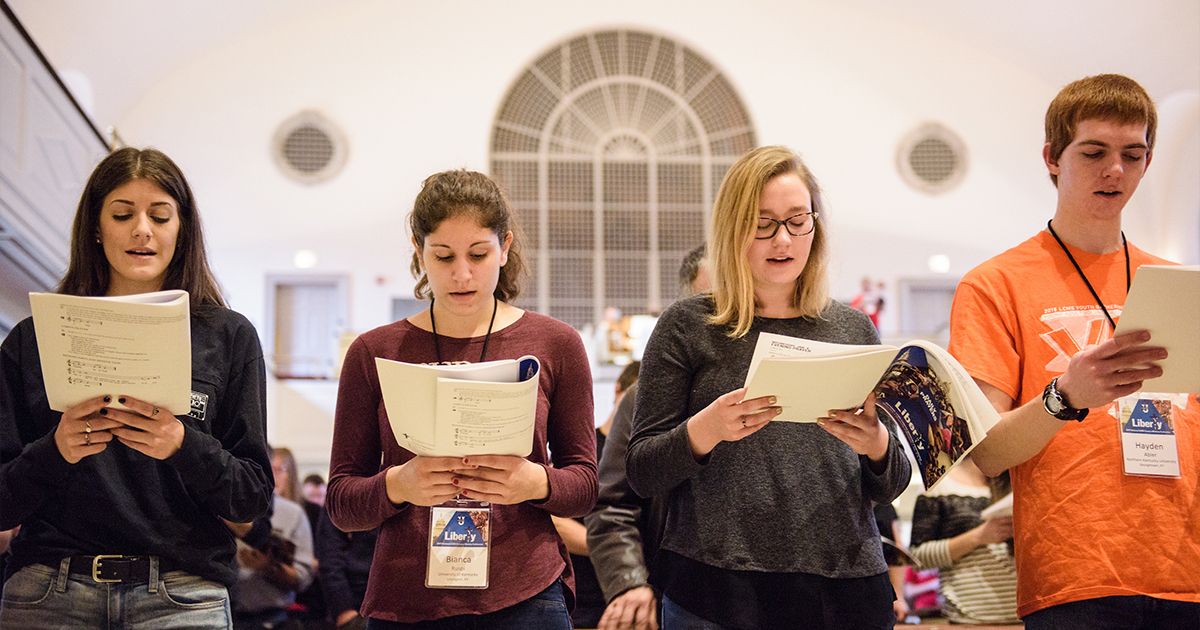
By Cheryl Magness
According to Pew Research Center, millennials (defined by Pew as being between the ages of 22 and 37 in 2018) have become the largest segment (35 percent) of the U.S. labor force and are poised to overtake baby boomers in 2019 as the largest segment of the U.S. population.
Yet, while millennials are increasing in the general population, they are decreasing in The Lutheran Church—Missouri Synod. Why?
Three-phase study
In 2017, LCMS Youth Ministry set out to answer that question by conducting a wide-ranging and in-depth study of young adult retention in the LCMS as well as the Christian church at large.
The research was conducted in three phases:
- A survey of LCMS congregations about the retention of young adults confirmed between 2004 and 2006.
- A survey of young adults who have ever had a connection to the LCMS, even if they don’t have one now.
- A series of focus groups with active LCMS young adults to further discuss areas highlighted by the second phase.
The results of the first two phases of the research were previewed at the 2018 LCMS Youth Ministry Symposium, held Jan. 28–30, 2018, in St. Louis, and later made available in summary form. (The complete report, summaries, webinars, and discussion guides are available at youthesource.com/lcms-young-adult-research.)
Those results, along with the additional feedback received from the focus groups, are being used to develop resources designed to assist LCMS congregations in ministering to young adults.
Varied and complex group
According to Julianna Shults, program manager for LCMS Youth Ministry, the focus groups both reinforced initial findings and filled in some gaps that remained after the first two phases of the research.
Some conclusions that emerged directly from the focus groups were that young adults:
- Desire to connect at church with people in their own peer group but put an even higher importance on good theology and an overall welcoming environment at church.
- Are interested in building relationships and receiving advice and mentoring from church members who are outside of their own age group.
- Want to serve and make a difference in the community.
- Want to be leaders but understand they need to be trained to do so.
- Want their church to talk about difficult issues such as mental health and sexuality.
- Are not a simple or homogeneous group but come from a variety of ages and stages in life, from those entering college to those who are starting careers and families.
- Feel misunderstood and/or ignored when they hear older adults being critical of their generation.
Participants in the focus groups were recruited in a variety of ways, including through social media, local churches and follow-up contact with those who took the young-adult survey. While both those actively attending and those not attending any church were invited to take part, only active attenders responded.
There were nine focus groups in all, comprising a total of 39 participants from around the country. Five of the focus groups took place online, allowing for wide geographical coverage, and four were held locally — two in Detroit and two in St. Louis. All responses were provided with the assurance of anonymity.
Shults, who led several of the focus groups, said the participants were sometimes nervous in the beginning, but that as the discussion progressed, they became more open.
“We hadn’t given them an idea of what the topics of discussion would be outside of what they knew we asked about on the survey,” Shults said. “At the end, almost everyone was thankful for a chance to share their thoughts, and the research team was very grateful for their candor and passion.”
New resources in development
Now that the research portion of this study is done, Youth Ministry is working to continue the development of resources such as webinars, discussion prompts, PowerPoint slides, blog posts and print materials for use by congregations as they consider how to reach the young adults in both their pews and their communities. These resources will continue to be added to youthesource.com, LCMS Youth Ministry’s resource website.
Reflecting on the study now that it has been completed, the Rev. Mark Kiessling, director of LCMS Youth Ministry, said, “Young people are a blessing from God and bring great joy, energy, insight and gifts to the church’s mission. We give thanks for the many faithful, caring congregations who prioritize ministry to children, young adults and their families.
“We pray the study will foster discussion about engaging young people in the life of Christ’s Church, strengthen relationships among Christian brothers and sisters, and increase our capacity to serve our neighbor in word and deed so others will know Jesus as their Savior.”
For more information about LCMS Youth Ministry, go to lcms.org/youth-ministry.
Posted Jan. 2, 2019